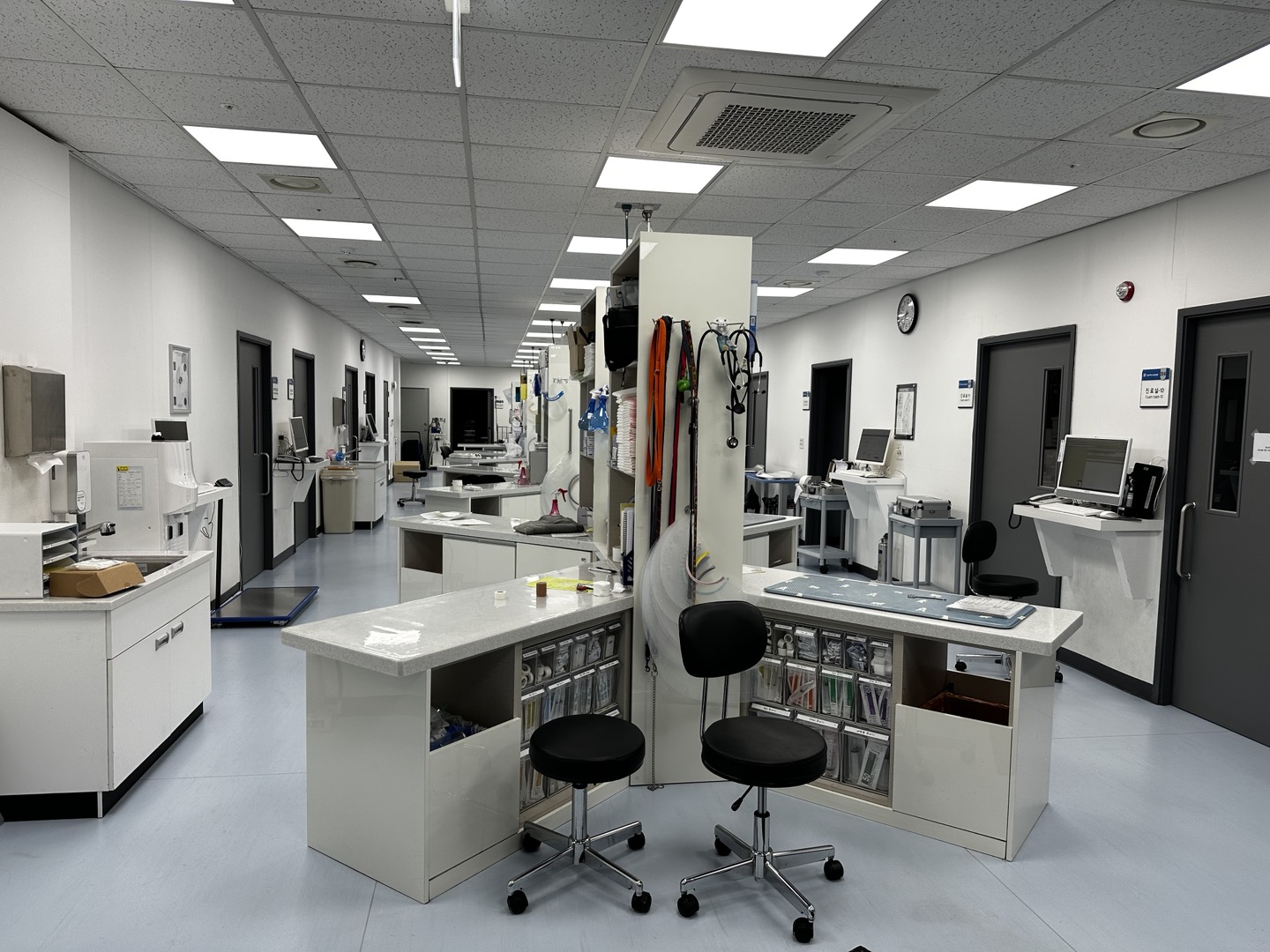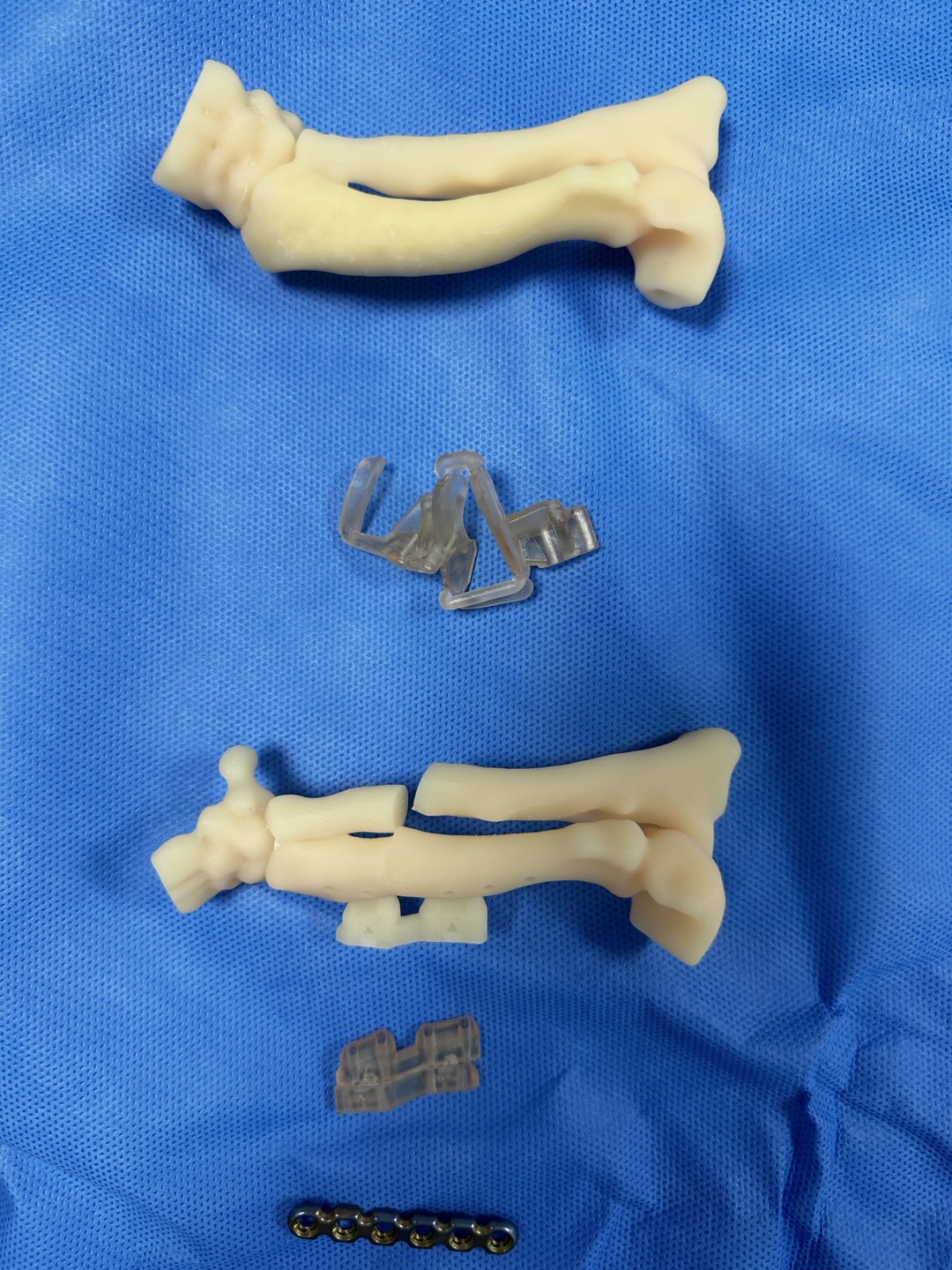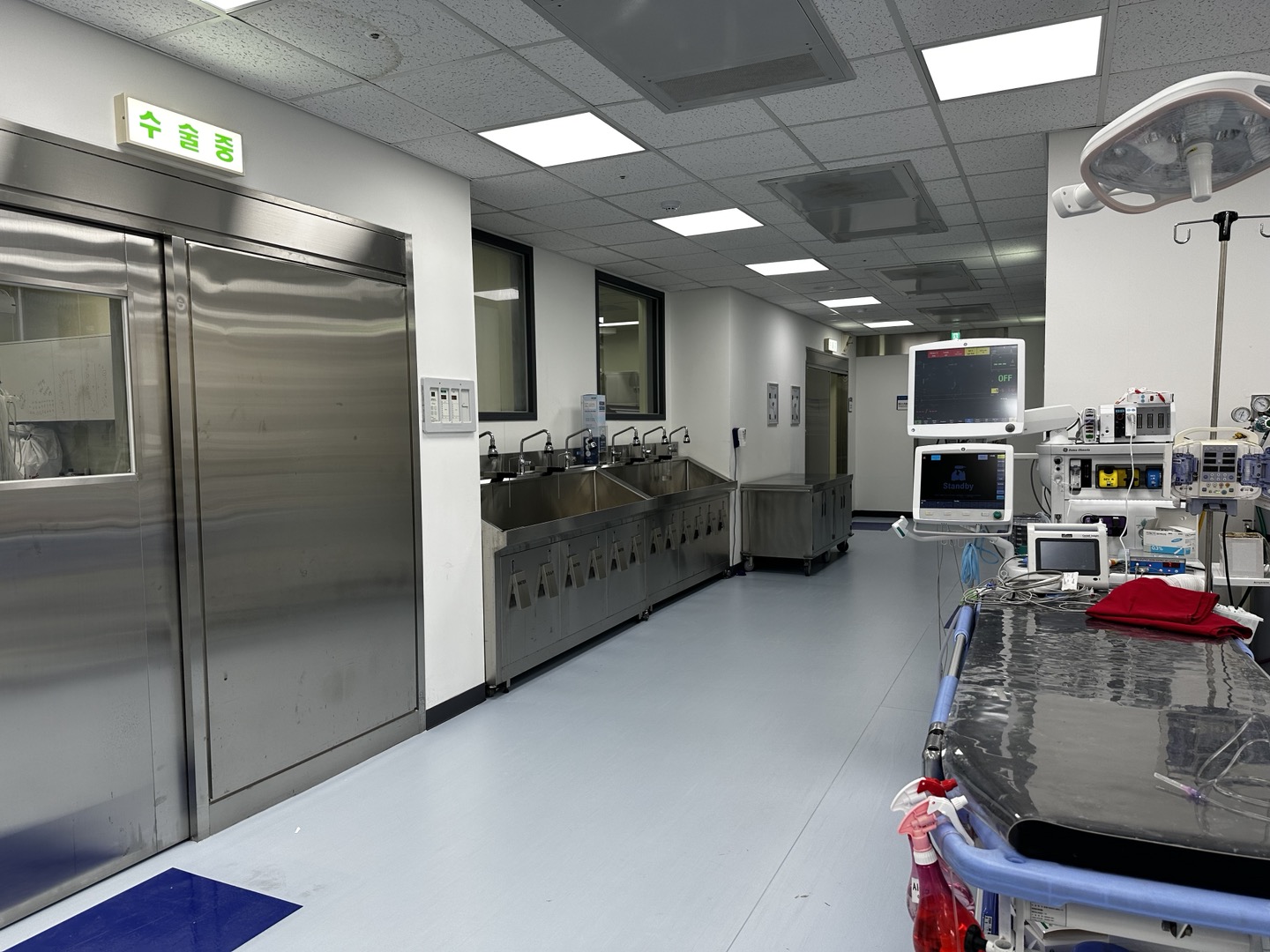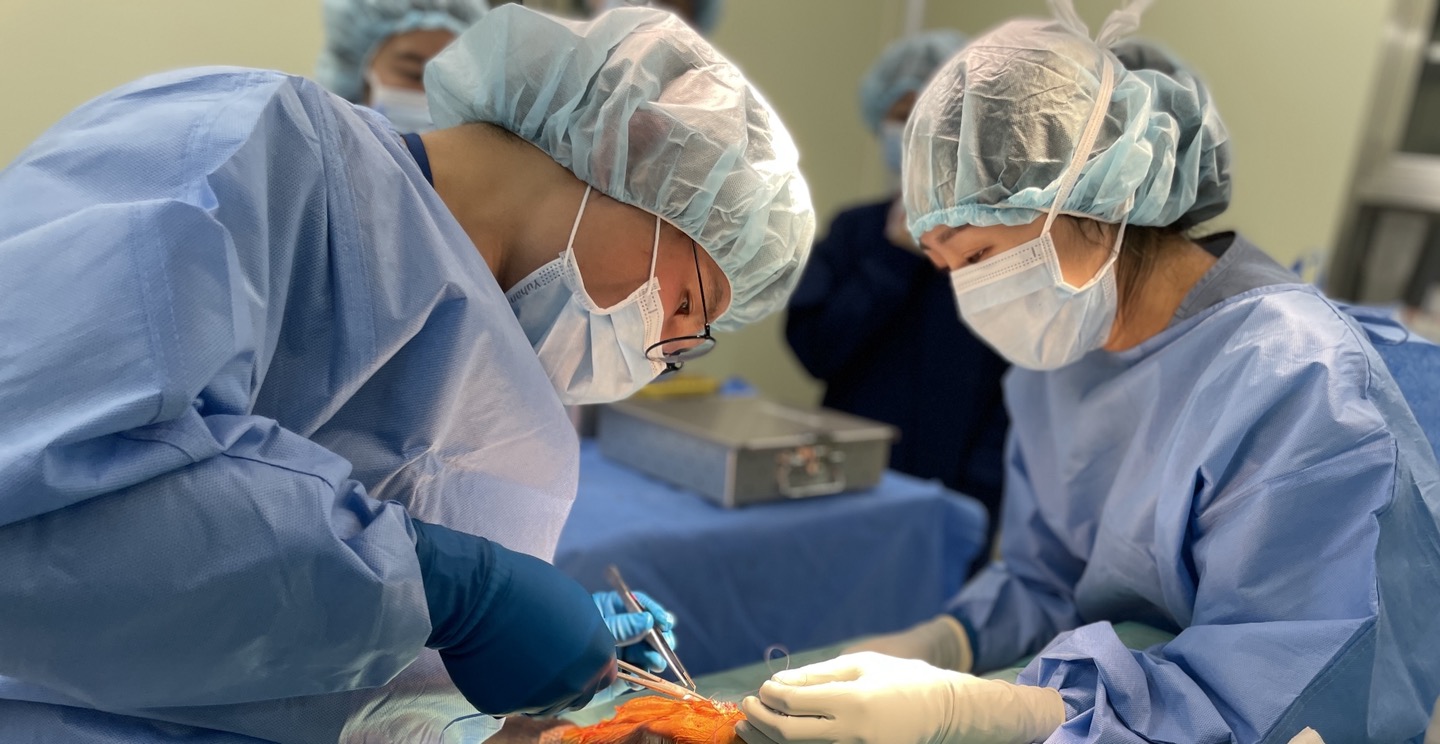Yujin Young, Class of 2023
2-week preceptorship
Orthopedics/Neurology rotations
I was given a wonderful opportunity to study abroad at the Seoul National University, College of Veterinary Medicine in South Korea, as one of the 4th year clinical rotations. I participated in a 2-week Orthopedics/Neurologic rotation under the supervision of Dr. Byung Jae Kang, DVM, Ph.D., and his graduate students.
I pursued this externship aiming to experience the importance of diversity in veterinary medicine. Promoting diversity, equity, and inclusion within the veterinary field is another important part of my career goal. On my first day of the rotation, I was given a tour of the hospital. I was very impressed with how up-to-date or even more advanced equipment they had. I could say it is one of the cleanest hospitals I have been to. Also, most of the clinicians were capable of speaking English.


As Seoul National University is an AVMA-accredited school, the rotation was structured similarly to the rotation back here at Iowa State University. However, Korea doesn’t have specialization training with interns/residents, but they have master’s and Ph.D. students working under senior clinicians with a balanced focus on clinics and research. The first-year graduate students are responsible for the initial workup like it is done by fourth-year students here. However, since I started clinical rotation at ISU before this externship, Dr. Kang allowed me to take on some cases. Throughout the rotation, I obtained a clinical history from clients, performed orthopedics and neurologic exams, assisted gait analysis, created differential lists, and devised treatment plans for various orthopedics and neurologic disorders in dogs and cats. I also observed and scrubbed in to assist with surgeries such as AAI Repair, FHNO, TPLO, MPLR, correction of angular deformity, and implant removal. I also presented a case review on a cranial cruciate rupture patient with concomitant medial patella luxation and a possible spherical osteotomy surgical approach. This was a great opportunity to learn how to do a case review and present recently published journal articles related to the topic. They also provided topic rounds on rehabilitation, orthopedics, neurologic examinations, and commonly used drugs that were very informative. Also, I got to play a brief translator role between US Military veterinary team visiting the facility and the on-site veterinarians when a military dog visited the hospital. Even though I have done a similar rotation at ISU and Korean is my first language, this was a great opportunity to challenge myself. It wasn’t just about the language itself but practicing how to translate medical terminologies into an easily understood term in Korean. Also, the clients in Korea had very different expectations when discussing the treatment options for their companions. Most wanted to get involved much more in making medical decisions and wanted to be informed about the disease very well. This opportunity made me realize my role as a veterinarian to meet the different needs of clients, which would also lead to meeting the medical needs of our patients.
The most interesting aspect of Korean veterinary medicine is its developed medicine for diseases predisposed to smaller dogs. Also, I learned that some procedures like utilizing the 3D printing method for angular deformity were much more affordable. Therefore, I got to learn about the approach that I didn’t get clinical experience with at ISU. Knowing various veterinary medical approaches in different countries will challenge the veterinary community. I want to contribute to the field by being a curious connector to fill the gap or even synergize with the development of veterinary medicine.


The best thing about the externship was networking with professionals interested in Orthopedics. It was amazing to continuously share the different approaches we learned and discuss their pros and cons. I will continue to seek opportunities to network with veterinary professionals worldwide to widen my medical approaches in my career. If you want to study abroad, I highly recommend visiting SNU, even if you don’t speak Korean. Language won’t be a much problem. But be ready to challenge yourself to various clinical cases and approaches that aren’t common here and expand your worldwide network!
I want to thank Iowa State University for its support with the Dean’s International Education Award and Seoul National University for welcoming me to join its team.

